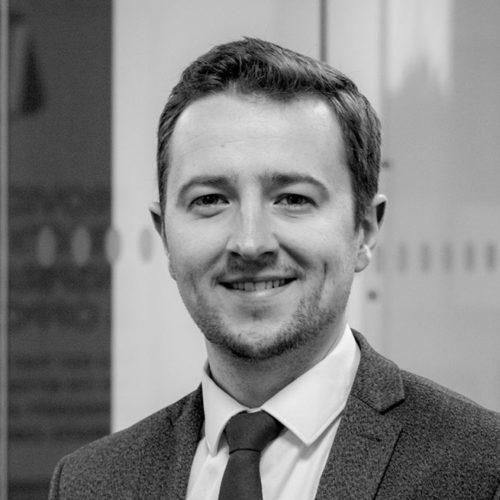Personal Insolvency
Getting you back on track - practical solutions when things get serious...
We understand how difficult it can be to ask for help when your finances are in a mess, but our team of specialist insolvency lawyers are very good listeners – and you may well find that things aren’t nearly as bad as you fear. In fact, it’s likely that we’ve dealt with a problem just like yours hundreds of times before.
It’s all too easy to get caught out by loans and credit cards, and it’s happening to thousands of people every day. And it’s tempting to ignore what’s happening and hope it’ll go away – but money problems tend to get worse rather than better.
We’ll provide fast, practical advice to help get you out of the red, and we’ll work with you to help make sure it doesn’t happen again.
Come and talk to one of our friendly lawyers: you’ll wonder why you didn’t do it earlier.
We can help you with:
- Reorganising your finances
- Negotiating with creditors
- Individual voluntary arrangements
- Advising on what bankruptcy means for partners and children
- Petitioning for bankruptcy and support afterwards
Get in touch with our insolvency solicitors in Sheffield and Barnsley
Get in touch with our friendly, expert personal insolvency solicitors in Sheffield and Barnsley for advice about dealing with debt.
We have local offices across Sheffield on Attercliffe Road and in Gleadless and Hillsborough, plus an office in Barnsley.
Give us a call at your nearest branch or fill in our online enquiry form, and we’ll give you a call back as soon as possible.
How our insolvency lawyers in Sheffield and Barnsley can help
Reorganising your finances
Reorganising and restructuring your finances can be a really effective way of making your debt more manageable, but it’s hard to know where to start. Our personal insolvency solicitors can help with this, explaining your options in plain language and helping you take the steps needed.
Options that may be available to you depending on the circumstances include:
- Debt consolidation
- Selling off assets
- Negotiating loan terms
- Entering into debt management plans
- Remortgaging
- Equity release
We will talk you through the benefits and drawbacks of your options so you can make a fully informed decision about the best way forwards.
Negotiations with creditors
A creditor’s priority is to recover its debt, but most would rather not take legal action to do so because taking a debtor to court can be a lengthy, involved and expensive process. So, creditors are often open to negotiations about debt repayments.
Our personal insolvency lawyers can provide support and advice to help you negotiate with your creditors. We’ll make sure you are coming from the strongest possible position, giving you the best possible chance of achieving a positive debt repayment plan or final settlement.
Creditor negotiations could give you vital breathing room to address your debts. In some situations, we are even able to negotiate reduced payments or settlements, allowing you to write off a proportion of your debts.
Individual voluntary arrangements
An Individual Voluntary Arrangement (IVA) allows you to repay some or all of your debts in a way that is more affordable. It is an alternative to bankruptcy, but there are drawbacks involved, so it’s important to seek independent legal advice.
If you are interested in seeking an IVA to repay your debts without having to go bankrupt, our solicitors can advise and represent you during the process. We’ll provide advice on all the considerations you need to take into account, so you fully understand the implications of what entering into an IVA means for you.
Bankruptcy
Bankruptcy is one way you can deal with debt. But it is a serious solution to debt issues that can have a big impact on your life, so you should be one hundred percent sure it is right for you.
Going bankrupt means that you’ll no longer have to communicate with your unsecured creditors directly or carry on repaying your unsecured debts. A professional called a trustee in bankruptcy will be responsible for handling your bankruptcy. They will usually liquidate your assets and distribute the money amongst your creditors.
Bankruptcy usually lasts a year, after which your unsecured debts will be written off, and you can start afresh (although the bankruptcy will be on your credit file for six years).
Whether you want to declare bankruptcy yourself or you are facing a bankruptcy petition from one of your creditors, our solicitors are here for you.
We know that debt issues can feel overwhelming, but you don’t have to go through bankruptcy alone. We can advise you at all stages of the process, from initial advice about whether bankruptcy is the best option available to you to handling bankruptcy applications and processes on your behalf. We can also provide advice about how bankruptcy could affect your partner and/or children.
Personal insolvency FAQs
What is an Individual Voluntary Arrangement?
An Individual Voluntary Arrangement (IVA) is a legal agreement you can enter into with your creditors to make your debt repayments more affordable.
It allows you to consolidate your debts into one payment which you make to an Insolvency Practitioner to split between your creditors.
Creditors will often agree to receive reduced payments because an IVA often means they’ll recover more than they would otherwise. If 75% of your creditors (by debt value) agree to your IVA proposal, they will all be bound by it (except secured creditors, who are usually exempt).
Once the IVA has finished, the remainder of your debts will be written off, allowing you to start afresh.
However, IVAs are not without their drawbacks. It’s vital to take specialist legal advice before committing to this option.
Does bankruptcy clear all your debt?
Bankruptcy clears most of your debts. It won’t clear:
- Magistrates’ court fines
- Court-ordered payments
- Maintenance payments and child support payments
- Student loans
- Debts owed because of the personal injury or death of someone else
- Social fund loans
Bankruptcy also doesn’t include secured debts, such as your mortgage. You need to keep on paying your mortgage even if you declare bankruptcy. If you stop paying, your lender could take steps to repossess your home and evict you.
Does bankruptcy affect your credit rating?
Yes, bankruptcy will stay on your credit file for six years, which could make it more difficult to obtain credit.
Get in touch with our insolvency solicitors in Sheffield and Barnsley
Get in touch with our friendly, expert personal insolvency solicitors in Sheffield and Barnsley for advice about dealing with debt.
We have local offices across Sheffield on Attercliffe Road and in Gleadless and Hillsborough, plus an office in Barnsley.
Give us a call at your nearest branch or fill in our online enquiry form, and we’ll give you a call back as soon as possible.
Impressed with Service
Atlas Technical Services
Atlas Technical Services


